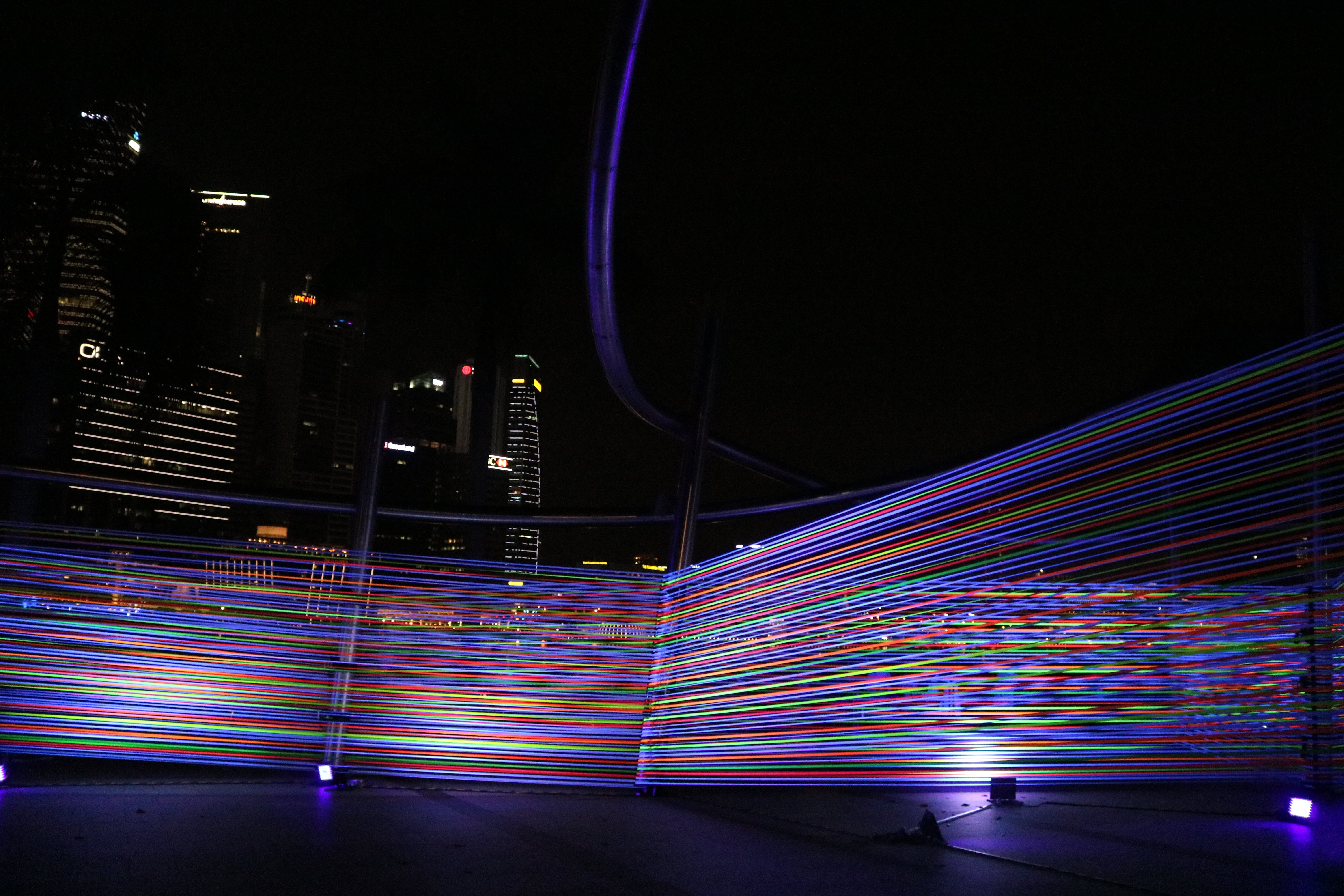I understand sustainability as a form of avoidance of the depletion of natural resources, such as oil and coal. Sustainability also means trying to save wildlife as they are connected in the ecosystem to natural resources. There has been a lot of campaigns about sustainability, whether it is to save electricity, save the ocean from garbage, as well as switching to alternative energy resources. A particularly relevant point for iLight installation is the campaign about saving energy and switching to alternative resources. I find iLight is a suitable method to send these two sustainability messages as light installations attract people to come and also interactivity engage people actively which would make a stronger impression for people to bring these sustainability messages home.
I went to iLight festival this year and last year. One of the installations that particularly caught my eye is this:
This installation is called Horizontal Interference. It is basically colourful tapes wrapped around poles in Marina Bay and were shined UV light. The result is a beautiful installation that looks as if the strings are LED strips themselves. This is such a brilliant idea to showcase an art with a minimum amount of energy. The installation itself serves as a good example on how to save energy and still can create something pleasant to look at.



